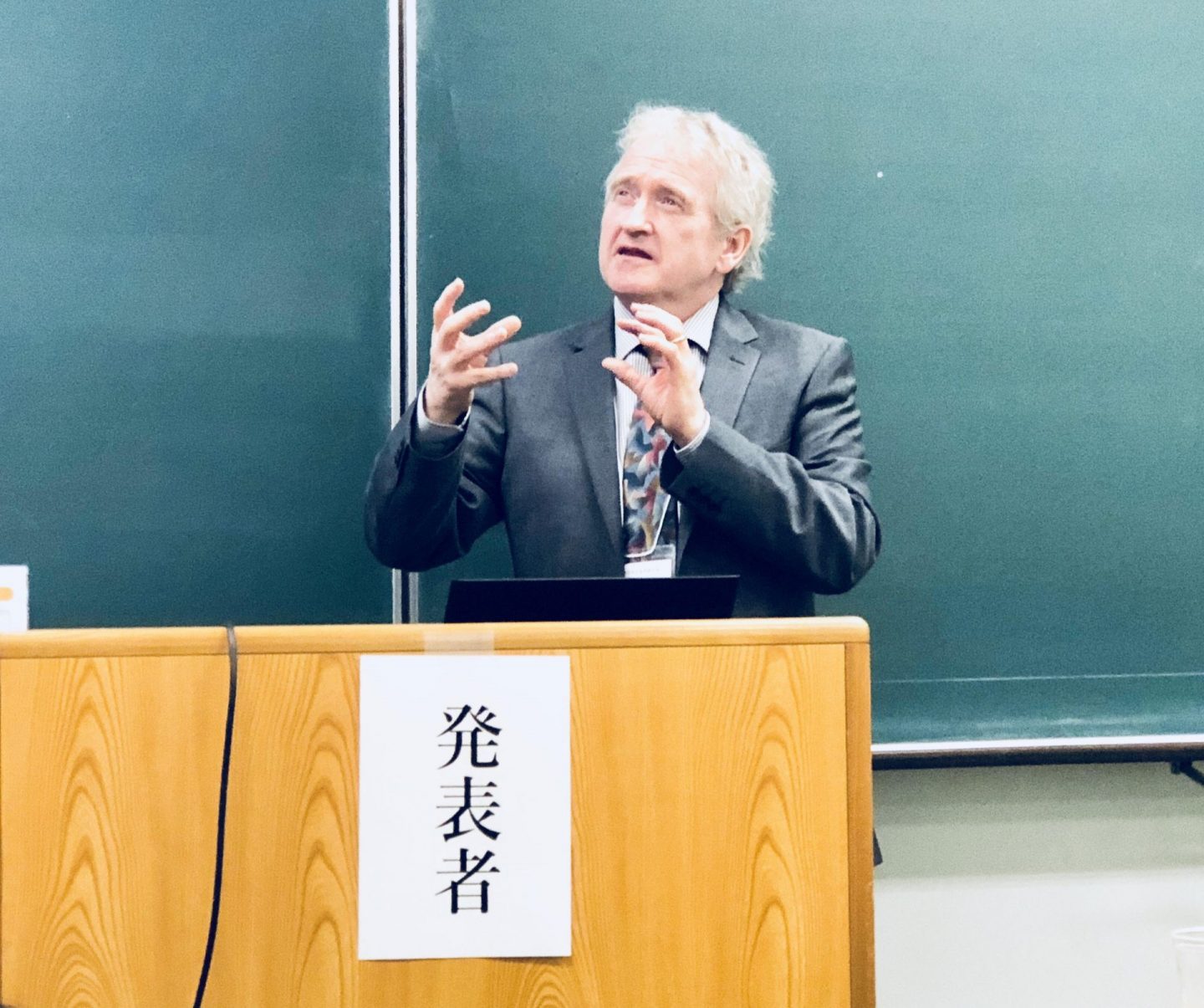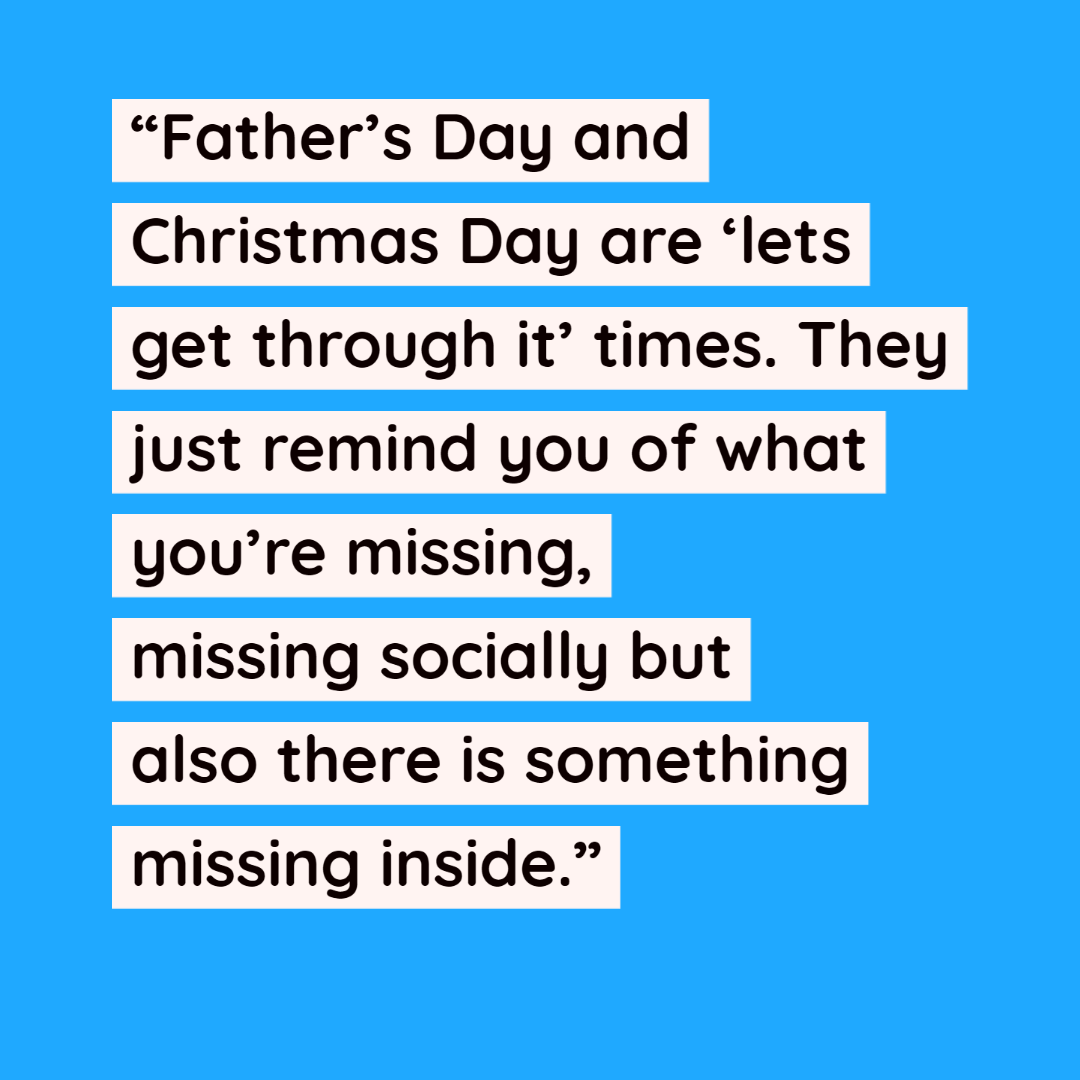As the name of this blog suggests, it is very focused on fatherhood. A subject I have never written about before is involuntarily childless men.

I’m sure we all know men (or indeed women) who don’t have children because they “never met the right person” or some other life event. I can think of people I have known, including relatives, who never had children. What I find upsetting is the disparaging way childless individuals, particularly involuntarily childless men, are spoken about. In my experiences they often have their sexuality questioned at best or can being accused of heinous abuse at worst.
Dr Robin Hadley is an involuntarily childless man. He is also a researcher who specialises in studying the lifecourse of men who are involuntarily childless. He’s well known for speaking publicly about this issue from both a professional and deeply personal perspective (He’s also one of the nicest people on twitter so do give him a follow).
With World Childless Week taking place from 14 – 20 September, this seemed like an ideal time to speak to Robin and get an understanding of the issues he and other childless men face. I found what Robin said very touching and also deeply personal and enlightening. I encourage you to have a read.
You are involuntarily childless yourself and often speak publicly about your situation. Can you explain why you didn’t have children?
I wanted to be a Dad, I expected to be a Dad but I didn’t become a Dad for a number of reasons wrapped in a constellation of circumstances. I was shy in my late teens and that meant I was a bit behind my peers in the girlfriend/break-up/grow-up-a-bit cycle.
I have never been a lounge lizard type. I did marry when I was in my mid-20’s and we did start ‘trying’ for a family but we divorced 4 years later. I kept the house on however, interest rates (remember those) went up to 15% and the housing market crashed. All monies went on the mortgage and so basically I didn’t go out for two to three years.
I sold up and moved to back to Manchester. I had a deep and loving relationship in my mid 30’s. ‘I want to have your babies’ she said. We split up (notice a pattern).
Then in my late 30’s I met my wife and she is a few years older than me and had accepted she wasn’t going to be a mother. So in summary, I didn’t become a Dad through a combination of self, partner choice, partner changing their mind, timing of relationship events and economics.
There’s a phrase I’ve seen in a few newspaper articles about childless men saying they experience “grief without death.” What do you say to those who think that sounds overdramatic?
It may sound dramatic but that is what it is. Also known as disenfranchised grief.
All societies have codes and rules on appropriate behaviour for most circumstances. For example, bereavement has many cultural-specific ways of behaving. However, if something happens that is outside of the ‘approved’ then event is often ignored, looked down on or stigmatised. For example, Julia Bueno’s (2019) book covers how miscarriage has been unacknowledged, not talked about, and minimised in many societies. She highlights how miscarriage affects men and how men often struggle to grieve in ‘recognisable ways’ (I.E. female) and this may make it difficult for their partners and their relationship.
The Office for National Statistics only tracks the number of childless women. What do you think this says about the status of involuntarily, childless men in society?
The lack of statistics on men’s reproductive outcomes says a lot about how a society views its men and women. In the UK there are probably a minimum of 25% of men that are childless compared to 20% of women. This is important because ‘if you are not counted then you don’t really count’ (Sheffield 1979) when it comes to policy and funding for services. This is important because in later life health and social care completely relies on adult children to fill the informal carer role. What happens if you do not have those children to do that?
I’ve seen you say a number of times that men have a “social clock, not a biological clock” when it comes to having children. Can you expand on that a little?
Oh did I – oh dear I’d better clear that up! Although women’s biological clock is well known, research has shown that there is a social clock made of socio-cultural expectations that is as equally important. For example, the age when it is expected you will become a parent and the pressure family and peers put on you. Men and women who become parents outside the’ approved’ times are held up for social sanction, unless you are rich and/or famous. There is a biological clock for men, the andropause, although it is slower and does not have the intensity of the menopause. Moreover, sperm starts to lose its efficacy from the mid-30’s onwards (Tomova and Carroll 2018). Although, men are fertile from puberty until death, very few men become fathers after the age of 50, less than 2% of fathers are over 50 years old.
Women who involuntarily don’t have children can also face challenges. What are the different challenges men and women in this situation face?
There are many challenges that involuntary childless women and men face. Briefly, childless women are exposed to a range of stereotypes from being selfish and career focused to being lesser for not reproducing. Quite often, these jibes and asides are made directly and in public. Men do not face the same quantity of discrimination, instead it is covert. Men’s experiences and feelings are often just dismissed as ‘man up’. The big difference is if men express a desire for fatherhood and the child-father bond. In the past they have been castigated (although that is changing slowly) if they are the ‘right’ age. An older man is often then viewed with suspicion as a dirty old man.
You’ve written a fascinating free-to-download chapter on ageing without children and its impact on social justice, taking in the impact of being childless in poorer nations and so on. What are the main issues men face as regards social justice?
That is a big question that covers a lot of topics. From my perspective, I think the no-collection of men’s fertility history at a child’s birth registration means data cannot be correlated with other fields. I think there is some justification in the argument that men are seen as disposable. For example, 75% of suicides are men, 90% of rough sleepers/homeless are men, male genital mutilation is not illegal, males have higher mortality across the life course, and less funding of men-specific diseases. Psychologists John Barry and Martin Seager argue that there is a ‘gamma bias’ in the media where men’s negative behaviour is enlarged and positive actions reduced. William Collin’s book ‘The Empathy Gap’ and blog ‘The Illustrated Empathy Gap’ goes into great detail on various topics.
And what about social connections? I know you’ve written about how men without children have differing social connections compared to those that do?
Children are a social bridge to formal and informal social connections: school, health care, other kids and their parents. Take any adult social gathering involving people aged over 35 and the opening question will inevitably be: “Do you have kids/grandkids?” People who are parents have a shared experience that childless people don’t have. For men, childless or parent, the fear of being seen a paedophile has become a fact of life.

What is the impact of growing older without children?
Women have larger social networks across the life course compared to men and men’s reduce significantly when they retire. There is little difference between people-ageing-without children and equivalently aged parents when their health is good. However, if their health declines they tend not to have the informal support to help them and/or advocate for them with the formal health and care providers. Older childless people are admitted into formal care at lower symptoms and are kept in longer than equivalent people who are parents. Families provide 92% of informal care in the UK. Pick any of the scandals over health care and older people over the last few years. It is adult children and family members who have raised the issues.
You’ve said some very interesting things about how working class men are more likely to be childless. Why is that?
Studies show that socio-economic status is a factor in childlessness for men. However, the reasons why are complex and I don’t think fully understood. However, economics is a powerful factor in reproduction and many people delay their fertility decisions because they want to be secure financially and have suitable living arrangements. Working class men tend to work in low paid, physically demanding and dangerous jobs and on precarious contracts. Education level comes into this, as working class men tend to leave the education system earlier than other classes. The impact of University student loans on people’s fertility decisions has yet to be fully realised (or researched).
There must be pinch points throughout the year that are tougher for men in your position (IE Father’s Day). How do you cope with them?
Father’s Day and Christmas Day are ‘lets get through it’ times. Although the lead up to both can be pretty bad too. They just remind you of what you’re missing, missing socially but also there is something missing inside. I try and plan to do stuff that I can get immersed in: Gardening, tax returns, decorating, sorting through the filing cabinet – anything that actually needs to be done but is easily put off.
What are the top three things to avoid saying to an older man who does not have children?
- You are better off without kids!
- You wouldn’t understand because you don’t have kids.
- You can have them at any time.
Final question, where can people find out about your work online?
I have a new website under construction but for the moment, the old one, that you’ll find here, is still worth visiting.
Links, references and further reading
Robin very kindly provided the following links for anyone who like to know what publications he has referenced and also to learn more about this subject.
Links:
- Julia Bueno: http://www.juliabueno.co.uk/the-brink-of-being-talking-about-miscarriage/
- ‘The Empathy Gap: https://www.amazon.co.uk/Empathy-Gap-Disadvantages-Mechanisms-Neglect/dp/095716888
- The Illustrated Empathy Gap
References:
- Sheffield, Horace. 1979. ‘As I See It: If You don’t get counted, you don’t really count’, Michigan Chronicle, 24 February 1979.
- Tomova, Ana-Maria, and Michael Carroll. 2018. ‘Lifestyle and Environmental Impacts on Fertility ‘ in Michael Carroll (ed.), Clinical Reproductive Science (Wiley-Blackwell: Hoboken, NJ).








2 thoughts on “The experience of involuntarily childless men with Dr Robin Hadley”
Thanks for posting this valuable article.
Fantastic website. Lots of useful info here